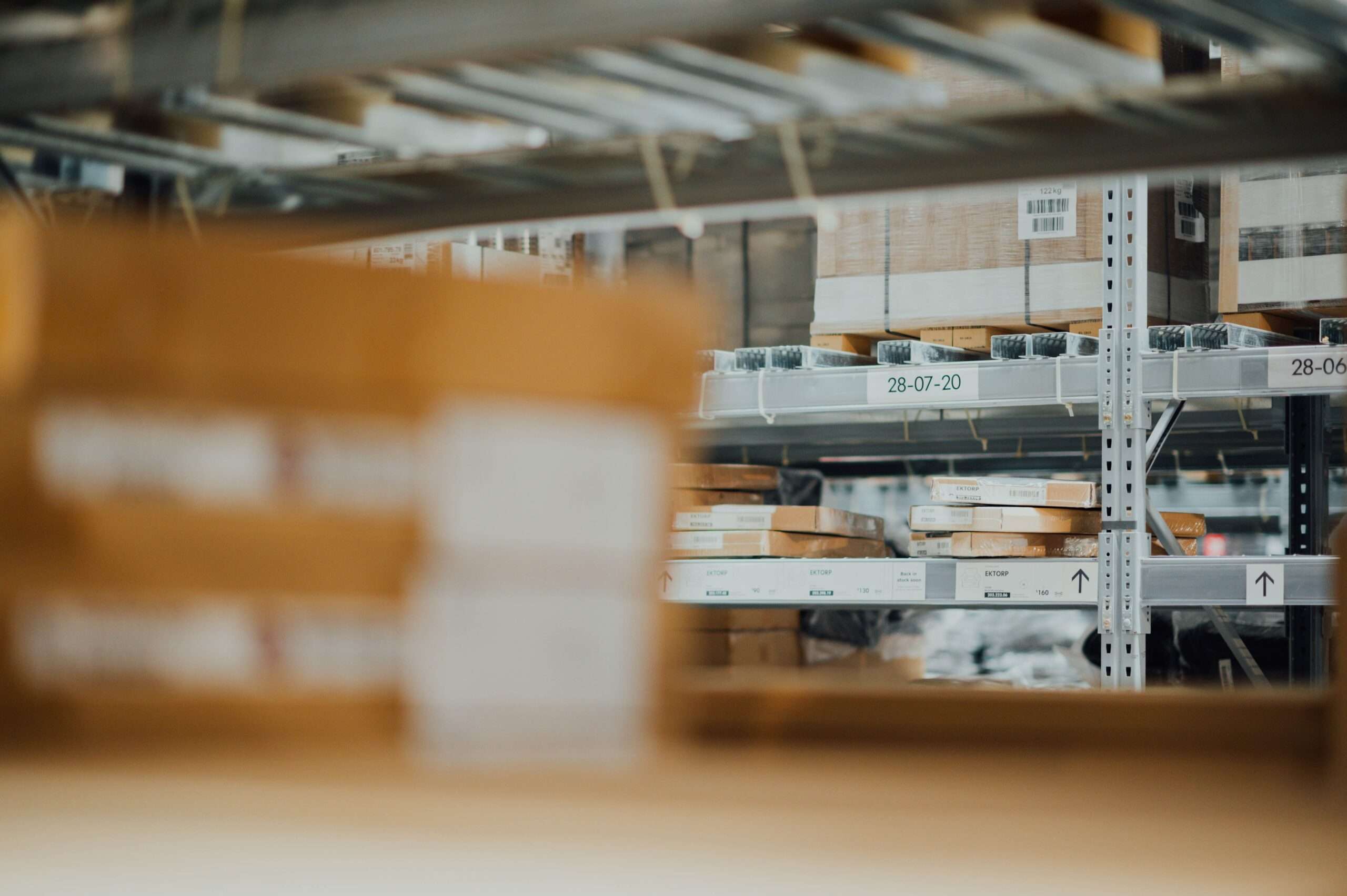Almost half of Malaysia-based CEOs are sceptical about their company’s long-term viability. As existential threats converge, many companies are taking steps to reinvent themselves. Is it enough? And what will it take to succeed?
Twelve months ago, we reported that 51% of CEOs in Malaysia believed their companies would no longer be viable in ten years’ time if they continued on their current path. This highlighted a dual imperative for CEOs: the need to focus on the profitability challenges of the ‘here and now’ while simultaneously reinventing their business to ensure future viability.
This year’s CEO Survey, conducted with 4,702 CEOs worldwide, including 1,774 CEOs in Asia Pacific and 44 CEOs in Malaysia indicates that the vast majority of companies are already taking at least some steps toward reinvention. But is it enough? Despite some progress, the survey suggests not, as 43% of Malaysia-based CEOs remain uncertain about their company’s viability.
Interestingly, CEOs also report feeling less exposed to threats over the near term. How can the two sentiments co-exist? It’s possible that CEOs are focusing more on addressing the short-term risks and having some success, rather than the wider long-term sustainability of their business.
This level of future uncertainty has been compounded by a year of persistent economic challenges and geopolitical conflicts re-defining risk and limiting growth. CEOs are also confronting generational crises and opportunities in climate and generative artificial intelligence (GenAI). All things considered, there’s a compelling argument for the need to accelerate business reinvention.

Most CEOs in Malaysia are taking steps to reinvent their businesses, but nearly half are still not confident in their company’s viability.
Technological disruption, climate change and other accelerating global megatrends continue to compel CEOs to adapt.
In PwC’s 27th Annual Global CEO Survey, 93% of Malaysia CEOs report taking at least some steps to change how they create, deliver and capture value over the past five years. Over that span, 77% took at least one action that had a large or very large impact on their company’s business model. This can be in the form of adopting new technologies, developing novel products/services, or forming new strategic partnership that boost capabilities.
However, we still see some uneasiness as 43% of Malaysia CEOs believe their companies will not be economically viable in the next decade if they continue on their current path. This is only a slight improvement than last year with 51% feeling this way.
The main hurdles hindering business reinvention, according to most CEOs, are lack of skills (70%) and technological know-how (64%).
This highlights that the workforce remains at the centre of reinvention, and the persistent and widening skill gap demands urgent action.
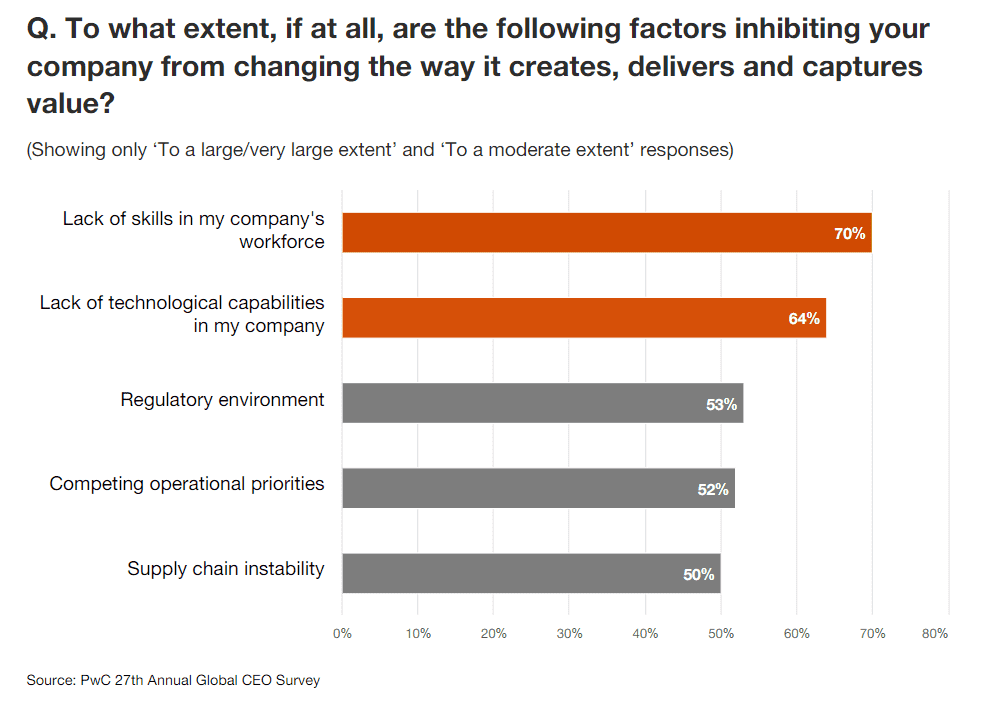
Concerns around economic volatility and inflation persist, while cyber risks loom.
Malaysia CEOs are slightly more optimistic about the global and local economic outlook this year compared to last year. Yet, bread and butter issues still seem to be on the top of everyone’s mind, as reflected in the survey where inflation and macroeconomic volatility still worry CEOs in Malaysia the most. However, they feel less threatened over the next 12 months than they did a year ago.
As today’s business leaders find themselves grappling with multiple highly consequential forces all at once, keeping the lights on ultimately takes precedence. A focus on the ‘here and now’ may have derailed business leaders from thinking about the wider long-term sustainability of their business.
Interestingly, cyber risk rounds up the top three list this year, while geopolitical conflict (no. 3 last year) declines to no. 4, reflecting the growing need for cybersecurity to be at the epicentre of business innovation and reinvention in the country.
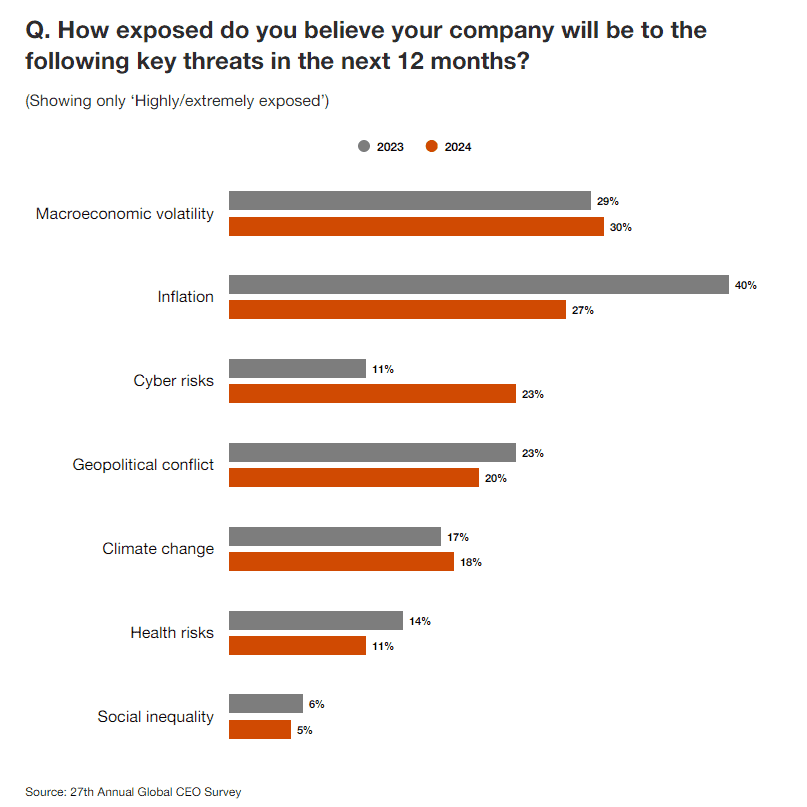

About one in five CEOs in Malaysia have no plans for climate actions other than decarbonisation where some progress has been made.
Among the megatrends pressuring CEOs to reinvent themselves, two stand out for their potential to amplify all the others: climate change and generative AI.
Action and investment in climate change continue to be made in Malaysia, but more effort is required for meaningful impact. PwC’s Net Zero Economy Index 2023 (Asia Pacific) notes that Malaysia’s current decarbonisation rate is at 2.5%, still behind what is required to meet the NDC (nationally determined contributions) target of 7.2%.
CEOs in Malaysia have taken steps, with some advancements in decarbonisation — 85% and 73% are in progress or have completed energy efficiency improvements and innovation of new, climate-friendly products, services or technologies respectively. These figures outpace the Asia Pacific averages of 68% for energy efficiency and 51% for climate-friendly innovation.
However, about one in five are not currently pursuing other types of action related to climate, such as adaptation, nature and initiatives for a just transition. While efforts to decarbonise must continue and accelerate, it must be coupled with an equal focus on adapting to the climate realities of today, including opportunities for nature-based solutions to help meet climate commitments.
Nature is particularly gaining more attention, with 2022 data showing that Bursa Malaysia has US$239bil in market capitalisation for high and moderate nature-dependent sectors, which represents 65.3% of Bursa’s entire market value. Integrating company’s climate adaptation and biodiversity efforts with adaptation and net zero programmes can yield significant advantages.
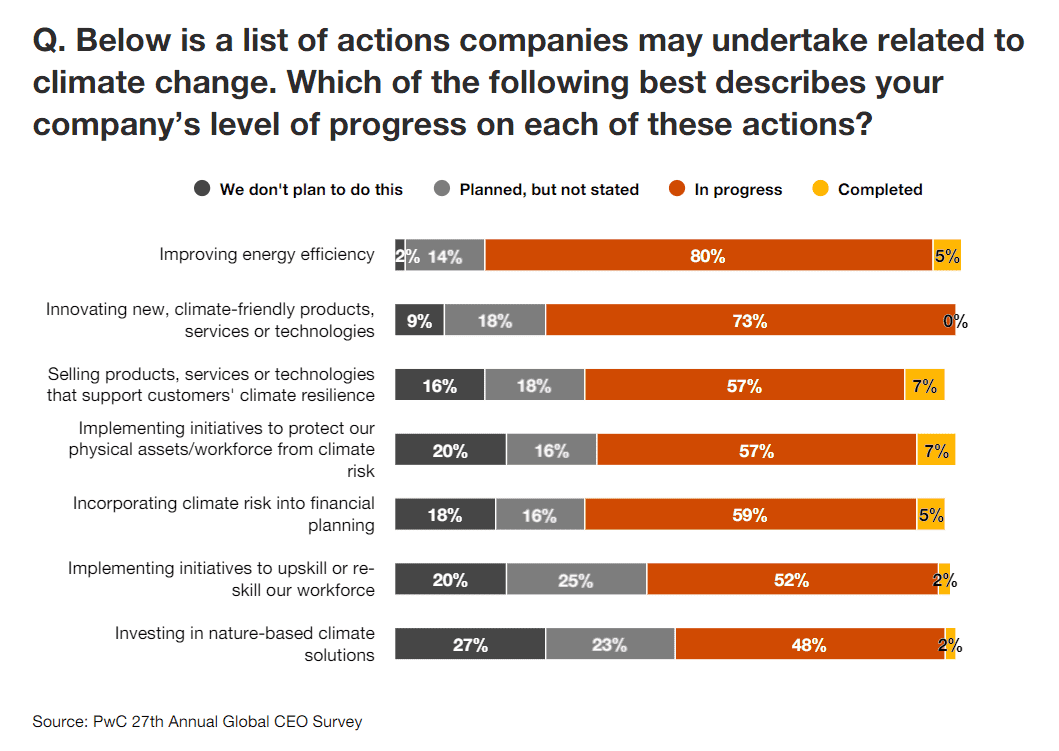
CEOs in Malaysia anticipate efficiency impacts from GenAI, but a quarter predict a reduction in headcount.
CEOs are also under pressure to reinvent and keep up with technological disruption, especially in GenAI. Malaysia CEOs in this year’s survey are aligned on the significant implications of GenAI, expressing optimism about its prospects.
41% of CEOs in Malaysia foresee substantial impacts GenAI would have on their companies, workforce and markets within the next three years. In particular, 82% anticipate the need for their workforce to acquire new skills in response to GenAI advancement, higher than global (69%) and Asia Pacific (76%). Surprisingly, despite this awareness, half admit to not having adopted GenAI across their companies in the past 12 months.
CEOs anticipate that GenAI will significantly enhance the efficiency of both their employees’ and their own time. At least 55% of CEOs in Malaysia are optimistic about GenAI contributing to increased efficiency, but 25% predict this would come with a reduction in headcount. However, companies reducing headcount in certain areas may counterbalance by hiring in other areas. AI offers opportunities for new revenue and growth through new products and services and access to new markets.
When assessing risks associated with GenAI, CEOs in Malaysia are primarily concerned about the rising cybersecurity risk (73%), higher than their global (64%) and Asia Pacific counterparts (49%).
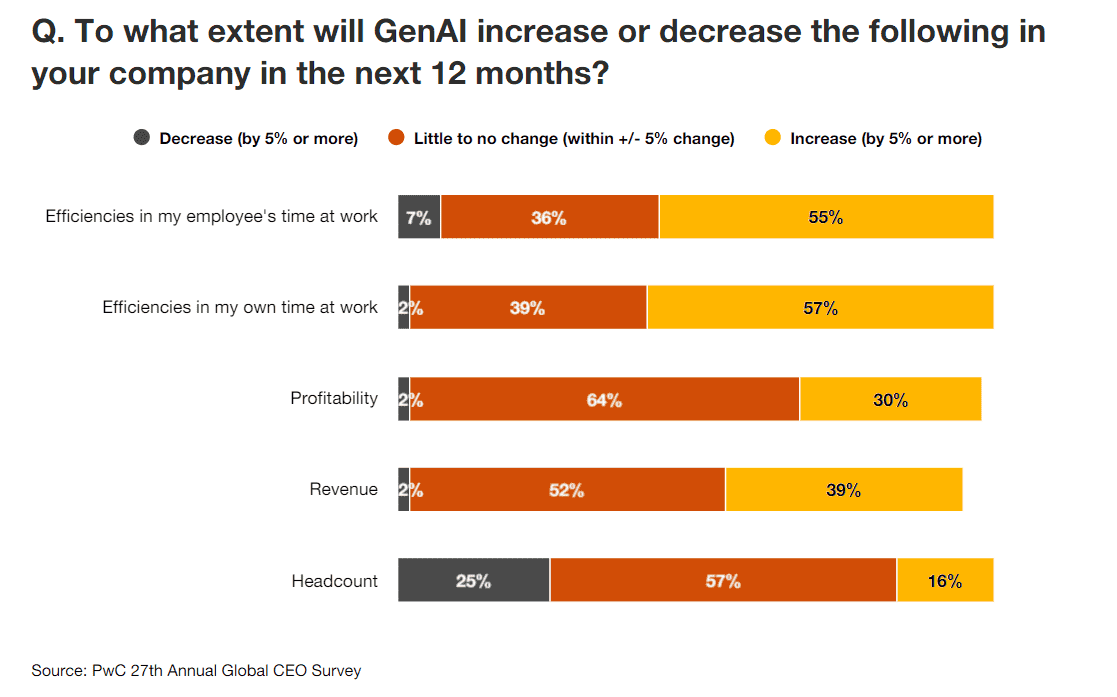

Equipped with a better understanding of the challenges and opportunities they face, CEOs in Malaysia can take several steps to accelerate and de-risk their reinvention:
Prioritise efforts in creating a transformation roadmap with a level of flexibility to cater to emerging threats and opportunities. Consider hiring subject matter experts with direct reporting lines to the C-suite in areas of transformation, climate and GenAI. Collectively, all layers of a business need to be bought in and empowered to build confidence in the reinvention mandate for the long term.
Reinvention will never be without risk. But in the new reality, taking the right risks is the optimal way forward. To do so, businesses need to integrate existing capabilities around data, analytics and insights to help identify risks in the most critical areas, for example, AI, supply chain and workforce. Doing so requires investment, but in return, it can help risk and line managers make better-informed decisions ahead of time.
Maintaining momentum in the climate challenge is crucial to winning it. To commence or accelerate delivery of adaptation, the ‘just transition’ and nature based solutions, management needs to be sufficiently informed on the scale of the opportunity, ecosystem players involved and relevant innovations. Prioritise capabilities relating to data and reporting, nature-based analysis and supply chain tracking. Collaboration within the industry and with capital providers can help co-fund initiatives, accelerate innovation and scale solutions faster.
GenAI use cases need to be structured and prioritised to balance building both responsibility and commerciality in parallel. Evaluate business strategy to determine AI positioning, considering trade-offs in governance, speed to market, and capabilities. The impact on workforce composition and required skills requires comprehensive, leader-led engagement with the entire organisation. This should be used to build alignment, understand how talent and their skills need to evolve and help create the workforce of the future.
Note: Not all figures in bar and stacked bar charts will add up to 100% as a result of rounding percentages and the decision in certain cases to exclude the display of ‘neither/nor’, ‘other’, ‘none of the above’, ‘don’t know’ and ‘prefer not to say’ responses.
The article was first published here.
Photo by Andrea Piacquadio.

 5.0
5.0 











